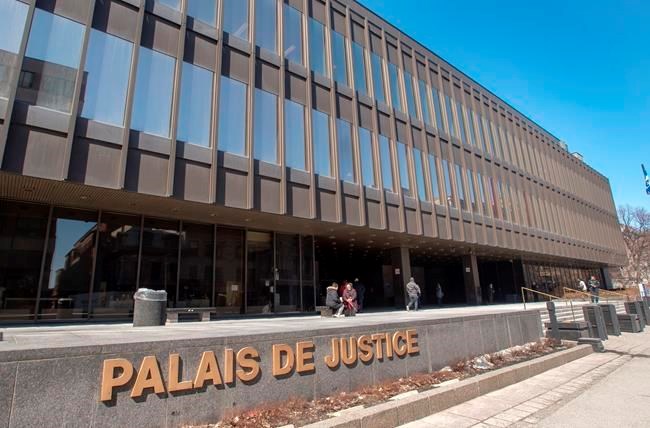MONTREAL — A Montreal billionaire accused of paying underage girls for sex is in poor health and must be compelled to testify before a class-action lawsuit against him is authorized, the lawyer behind the case argued Thursday.
Jeff Orenstein has asked the Quebec Superior Court for permission to question Robert Miller as soon as possible because he said he worries the 80-year-old will be dead by the time the case goes to trial.
"It's very clear that it's now or never, he has a degenerative illness," Orenstein told a hearing at the Montreal courthouse.
However, Miller's lawyer Karim Renno argued that his client is already too ill to submit to questioning.
"Mr. Miller is unable to testify, that seems to be the prevailing medical opinion of the experts on both sides," Renno told reporters outside the courtroom.
The class-action application alleges Miller gave dozens of minors money and gifts in exchange for sex between 1996 and 2006. In an unsuccessful request to freeze some Miller's assets in November, Orenstein estimated the value of the damages that would be sought by the suit at up to $200 million. Miller has denied all the accusations against him.
Renno has submitted as evidence reports by two doctors, and while Justice Christian Immer ordered those reports sealed, the judge did not extend the publication ban to comments made in court about the reports.
"The experts believe that (Miller's) life would be at risk if he was put through the stress of an examination, I don't believe it's worth it to do that," Renno said. "Particularly since the evidence that the plaintiff is seeking, he's already got through his own clients, he's basically asking to force our client to deny allegations. That's not necessary."
Dr. Alain Dagher, a neurologist called by Orenstein, testified Thursday that based on his review of the medical reports, the billionaire is unable to walk or get out of bed due to advanced Parkinson's disease, but has normal cognitive abilities for a person his age.
His medical condition can also cause shortness of breath, requiring oxygen, and stress could worsen his condition, Dagher said. "I believe that he could be interviewed as long as the people doing the interviewing understand that they would have to stop if he became visibly stressed or short of breath."
Orenstein is seeking permission under a provision that allows for early questioning in order to preserve necessary evidence. His class-action lawsuit still needs to be authorized by a judge to move forward.
"We've got the stories of, as we know, about 47 women already, and I think we want to hear what the other side of the story is," Orenstein told reporters outside the courtroom. "What we want out of this case is the truth."
Immer questioned Orenstein's strategy, saying it didn't make sense why the plaintiff's legal team would want to ensure the defendant's denials are on the record. The judge said he also worries that Miller, who can only say three or four words at a time, will have his health threatened by the stress of testifying.
"My fear is that person will pass away lying in the bed testifying, that is a problem for me," the judge said.
Orenstein said he would limit his questioning to three hours — not counting any breaks needed for Miller to take medication.
The judge suggested that even if he authorizes the early questioning, Orenstein would only be able to ask questions related to the case's one representative plaintiff and not other potential members of the class action.
Orenstein has said three of 47 women who accuse Miller of paying for sex with them were under 14 at the time. However, he only officially represents one woman — identified in court documents as S.N. — who says she was 17 when Miller paid for sex with her.
Orenstein is also seeking permission to question Helmut Lippmann — a 90-year-old vice-president at the company Miller founded, Future Electronics — as soon as possible due to his advanced age.
Lippmann's lawyer, Neil Oberman, said Orenstein hasn't presented evidence that Lippmann wouldn't be able to testify if the case goes to trial, other than his age, and argued that compelling him to testify at this point based solely on that factor would be illegal discrimination.
“All he says to you, '90 is old,'" Oberman said. "That's his opinion, judge, that's not evidence, that's not a fact, that's not something you can rely on."
Throughout the hearing, the judge expressed frustration about the slow pace at which the case is moving, adding that it was Orenstein's various applications that have caused delays. "Move this file along for the sake of these 47 women and S.N.," Immer said.
This report by The Canadian Press was first published Jan. 18, 2024.
Jacob Serebrin, The Canadian Press



